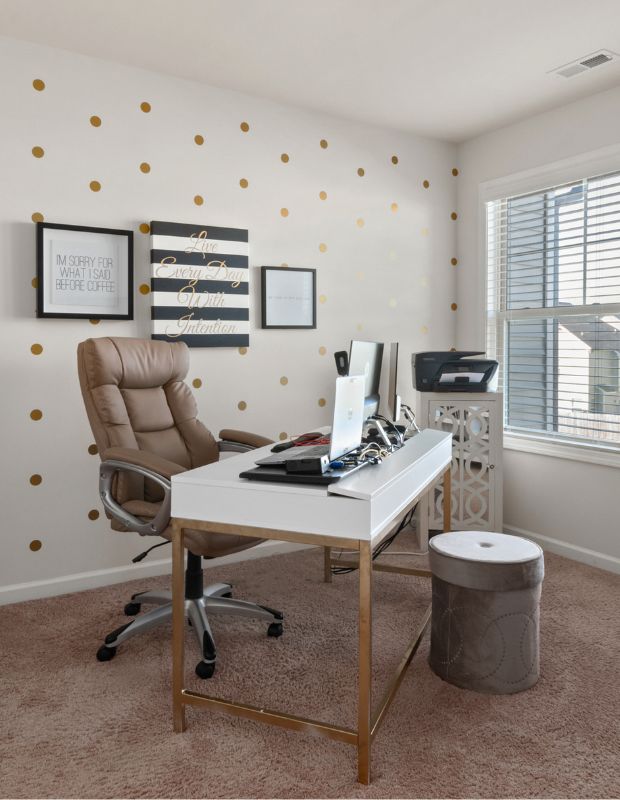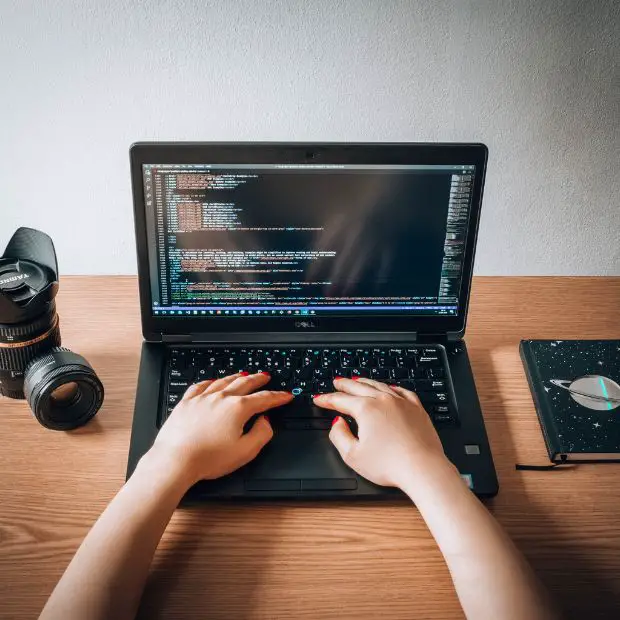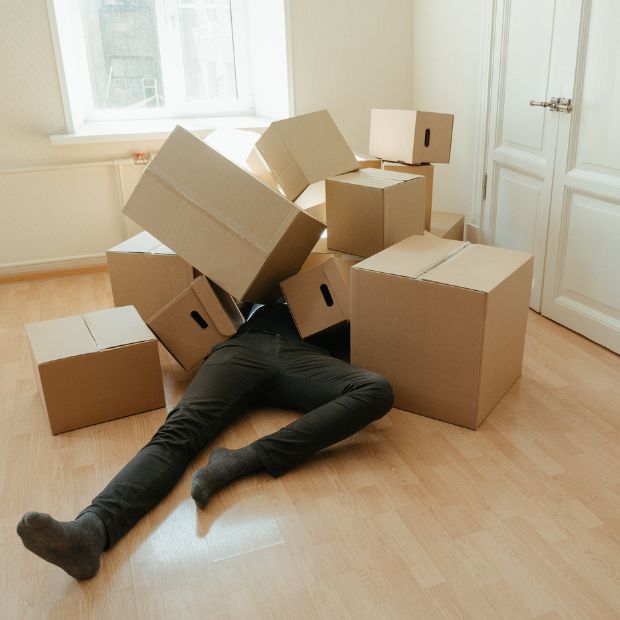
There’s a tremendous amount of people working remotely these days. Over 4 million in the US alone.
With many companies offering remote work options, this number will explode over the next few years. Working remotely offers many benefits, including increased flexibility and freedom, but it also comes with its own set of safety concerns. That’s why I’ve compiled some of the best remote work safety tips for you. Read on and stay safe!
10 Best Remote Work Safety Tips:
When you work remotely, it’s crucial to take safety precautions seriously to stay healthy, productive, and away from harm. We are not only talking about the safety of your person, your family, and your properties but also the sensitive information stored in your computer and other electronic devices. Here’s how to stay safe and have more peace of mind:
1. Pick an Exclusive, Dedicated Work Space in Your Home
Your home office can be a simple space, but make sure to make it your own. It’s crucial that your work location stays consistent and you use it mostly for work-related activities. Working and moving around in a familiar space would minimize the risk of bumping into objects or stepping onto anything that could hurt you. It would also signal other home dwellers to respect the space. Find a spot that works for you and completely designate it as a workspace. This will help you focus and stay productive as well.

2. Make Sure Your Workspace Is Well-Lit and Comfortable
Designing your workspace with proper illumination will help spare you from maladies such as migraines and chronic back pain. It’s a good idea to invest in a comfortable and supportive office chair you’ll be sitting on for long periods, so it’s essential to have a chair that won’t cause pain or discomfort. Also, make sure your computer monitor is at the eye level. Looking down at the screen for too long can lead to neck and eye strain. You don’t want to end up with neck or back pain from working at a bad desk setup or straining your eyes in a poorly lit room!
3. Take Breaks to Stretch and Move Around
Sitting in one position for too long isn’t good for your health. It could lead to poor blood circulation and muscle stiffening or knots in some parts of your body, such as your shoulder, lower back, and hips. If you’re on the phone frequently during work hours, use a headset to avoid cradling the phone between your ear and shoulder. It will also enable you to walk or stretch out a bit while talking on the phone. This is one of my little remote work secrets! Get up every 20 minutes, walk around, do some stretches, grab a snack, or just get some fresh air if you can. Another excellent idea is staying hydrated. Drinking plenty of water will help keep you focused and energized throughout the day.

4. Go Out Every Once in a While and Don’t Forget to Lock Up
Work takes up a lot of our time; for some of us, it’s the main reason we leave the house. But when people work from home, they become cooped up and neglect to get some sunshine. Not leaving the house can have consequences beyond a sore back. It can also affect your mental health, and in turn, your work performance. Find reasons to leave your house every day, even if it’s just to grab a morning cup of coffee or go to your local gym (this one is my favorite!) A change in pace and scenery now and then can do wonders for your mind and body. Don’t forget to lock up whenever you step out of the house, though. This is one of the paramount remote work safety tips.
5. Pay Attention to Password Safety
Be mindful of password safety when working remotely. If you cannot memorize everything and have to keep a copy of your passwords, store them in a secure location to prevent them from being lost, stolen, or used without permission. There are some online passwords that you can save in Chrome or a password managers program such as Password Safe or BitWarden, but I suggest that you keep the most sensitive ones such as your online banking password secret.
6. Use an Encrypted Messaging App
Messaging apps like WhatsApp and Signal use encryptions that offer a convenient and secure way to keep in touch with colleagues when you’re not in the office. These apps encrypt your messages so that the receiver is the only one that can read them. This means that your data is protected from prying eyes, even if it’s intercepted by someone else.
7. Use a Secure Browser
A secure browser like Tor Browser, Safari, Brave, or DuckDuckGo is a great way to keep your data safe when you’re working remotely. When you use a secure browser, all of your traffic is encrypted, and no one can track what you’re doing online. This is especially important for employees who might be working abroad using public Wi-Fi networks. When you use regular open networks, you might be asking for trouble as cybercriminals regularly trawl such places looking for weak security and easy-to-infiltrate devices. You may also consider securing your connection with a VPN.

8. Treat Business Information Like Personal Information
Keeping your business information secure is just as important as keeping your personal information private. Trade secrets, employee files, banking information, and company credit accounts must be safeguarded at all times. Ensure that the software you’re using for work is always up-to-date and only save what is necessary to do your job. If you’re the boss, keep track of what customer data you collect and where it is stored. Knowing this customer data can help improve your customer service.
9. Get Cyber Insurance
The best way to keep your devices safe from intruders is to check and secure them before using them. Set up a secure connection from your home station to your company network. Even if you take all the necessary precautions, cybersecurity is still a concern, as hackers constantly find new ways to access devices. It is therefore important to have cyber insurance policies in place, especially if you work remotely. Consider how much coverage you need and how much you can afford. This will depend on the specific risks associated with your business. Also, consider what type of services the provider offers, such as preventative guidance and reimbursement for legal costs.
10. Keep Liquids and Food Away from Your Laptop
It is important to avoid placing food or liquids near your laptop or even your desktop computer. Spillage could damage the internal microelectronic components or cause electrical damage. Short circuits can corrupt data or even permanently destroy certain parts of the laptop, so it is best to keep your drinks and foods away from your workspace. Key Takeaway: When working remotely, take some safety precautions. Choose a dedicated workspace, take breaks and stay hydrated, invest in a comfortable office setup, and protect your data at all costs.
Remote Work Hazards and How to Avoid Them:
Working remotely comes with a unique set of hazards. To stay safe while working from home, be aware of the following potential dangers and take steps to avoid them (put intended):

1. Slips, Trips, and Falls
Slips, trips, and falls cause many deaths and injuries in workplaces, schools, and even homes. Slips result from too little friction or a lack of traction between the footwear and the floor surface. A trip is caused by a foot striking or colliding with an object, which leads to a loss in balance, and usually a fall. According to the Bureau of Labor Statistics, these types of accidents cause nearly 700 fatalities per year and many more injurious accidents in the workplace. Be extra careful when walking around your home office. Try to remove any tripping hazards like cords or loose rugs. Keep things tidy and out of the way to prevent trip hazards. Also, consider wearing shoes with good traction if you’re going to be moving around a lot.
2. Musculoskeletal Injuries
Musculoskeletal injury refers to damage to muscular or skeletal systems, which is usually due to strenuous activity. It includes fractures or strains to skeletal muscles, bones, tendons, joints, ligaments, and other affected soft tissues. Poor ergonomics is one of the most common causes of musculoskeletal injuries. If you work at a computer all day, make sure your chair and desk are at the proper height, your monitor is at eye level, and you have good posture. Taking breaks, stretching, and moving around every once in a while helps a lot.
3. Eye Strain
“Working from home has given us more hours to look at computer screens,” says Tanya Polec, OD, a vision rehabilitation specialist at VQ Vision in Tucson, AZ. “The more stress we put on our visual system, the more likely we are to do permanent damage.” Working remotely involves hours of sitting in front of your computer, which could cause eye strain. Doing so without taking periodic breaks can cause eyestrain and headaches. To avoid discomfort, try the 20-20-20 rule: Every 20 minutes, look at something 20 feet away for 20 seconds. If your eyes feel dry or strained, use artificial tears. Key idea: Working remotely comes with safety concerns. Be aware of potential dangers and take steps to avoid them. It includes slippery floor surfaces, tripping hazards, and poor ergonomics.

Work From Home Safety Tips:
If you work from home, it’s important to ensure your safety and well-being. Here are some extra tips that’ll keep you safe:
- Make sure your work area is well-lit and clutter-free. A tidy workspace will help you stay focused and efficient. Plus, it’ll reduce the risk of trips and falls.
- Invest in a comfortable chair and ergonomic keyboard and mouse to avoid strains on your body. You’ll be spending long hours at your desk, so make sure you’re comfy.
- Take regular breaks to move around and stretch your muscles to avoid stiffness and pain. Sitting in one position for too long is not good for our bodies. Take a few minutes every hour to walk around or do some simple stretches. Do some hand exercises as well to prevent carpal tunnel syndrome.
- Stay hydrated by drinking plenty of water throughout the day. Dehydration can cause headaches, fatigue, dry eyes, and muscle cramps. It’s not fun, so drink up!
- And finally, live a healthy lifestyle! Get enough sleep, eat nutritious meals, and exercise regularly. All these things help improve focus, productivity, and mental health.
Other things to watch out for while working remotely are cyber-attacks and phishing scams. You are more vulnerable to this when using unsecured networks and public access Wi-Fi, such as in cafes and shopping malls. Working from home has become the new normal for many of us. While there are lots of benefits to this arrangement, it’s important to be aware of the potential risks and take steps to ensure your safety. When working from home, take steps to ensure your safety and well-being. Invest in a comfortable and ergonomic home office setup, take regular breaks, stay hydrated, and set up a firewall to protect your computer data.

General Work Safety Tips:
When thinking about safety in the workplace, there are some general tips that everyone should follow to stay safe and avoid accidents.
- First, you should always be aware of your surroundings and take care of yourself, both physically and mentally.
- If you feel tired, take a nap before continuing with work.
- It’s also important to establish a routine. This will help keep your energy levels up and improve your focus throughout the day.
- In terms of your workspace, it’s important that it is clean, comfortable, and organized so that you can minimize distractions and maximize efficiency.
- Secure all cords properly and away from foot traffic areas. Clutter can easily lead to trip hazards.
- And finally, if you use any type of machinery or equipment during your workday, always be sure to follow the proper safety protocols and procedures to avoid accidents.
By following these general tips, you can create a safer work environment for yourself and those around you. Key Takeaway: It’s important to be aware of your surroundings and take care of yourself to stay safe at work.
FAQ Regarding The Remote Work Safety Tips:
1. How can I stay safe while working remotely?
You can do a few key things to stay safe while working remotely. First, make sure your home office setup is in a private and secure location. This means choosing a room with a door that locks, or setting up some kind of barrier between you and the rest of the house or apartment so that nosy roommates or family members can’t eavesdrop on your work conversations. Next, invest in good quality security software for your computer – this will help protect against hacking attempts and malware attacks. Finally, be careful about what personal information you share online (on social media, blogs, etc.). Remember that potential employers or clients could be reading.
2. What are the top safety tips to adhere to in the workplace?
- Maintain a clean and organized workspace. A cluttered desk can lead to accidents and injuries. Keep your work area tidy and be sure to dispose of any garbage or debris immediately.
- Be aware of your surroundings at all times. Pay attention to what’s going on around you, and be cautious of potential hazards. If you see something that could pose a risk, take action to avoid it or mitigate the danger.
- Use proper safety equipment when necessary. If you’re working with dangerous materials or in an environment where there are potential risks, be sure to use safety gear (e.g., gloves, goggles, respirators).
- Follow all company safety policies and procedures. Your employer should have specific guidelines in place regarding how to stay safe while on the job. Make sure you understand these rules thoroughly before beginning any task.
- Report any unsafe conditions immediately. If you notice anything that might cause harm, even if it doesn’t seem like a big deal, let your supervisor know right away so corrective measures can be taken.
Staying safe at work is a shared responsibility—everyone from the CEO to entry-level employees needs to do their part in creating and maintaining a safe workplace. By following the tips above, you can help keep your office or factory accident-free.
Conclusion
So, there you have it, 10 essential remote work safety tips. Follow them to help ensure that your remote work experience is pleasant, productive, and safe. Have a tidy, hazard-free, dedicated workspace, live a healthy lifestyle, move around and stretch your muscles to prevent stiffness, fatigue, and injuries, and take all precautionary measures to keep your data secure. And, if you ever find yourself in a situation where you feel unsafe, do not hesitate to reach out to a trusted friend or family member for support. Next up, you may want to check the top tips for hiring a virtual assistant.
Hey there, welcome to my blog! I'm a full-time entrepreneur building two companies, a digital marketer, and a content creator with 10+ years of experience. I started RafalReyzer.com to provide you with great tools and strategies you can use to become a proficient digital marketer and achieve freedom through online creativity. My site is a one-stop shop for digital marketers, and content enthusiasts who want to be independent, earn more money, and create beautiful things. Explore my journey here, and don't forget to get in touch if you need help with digital marketing.

